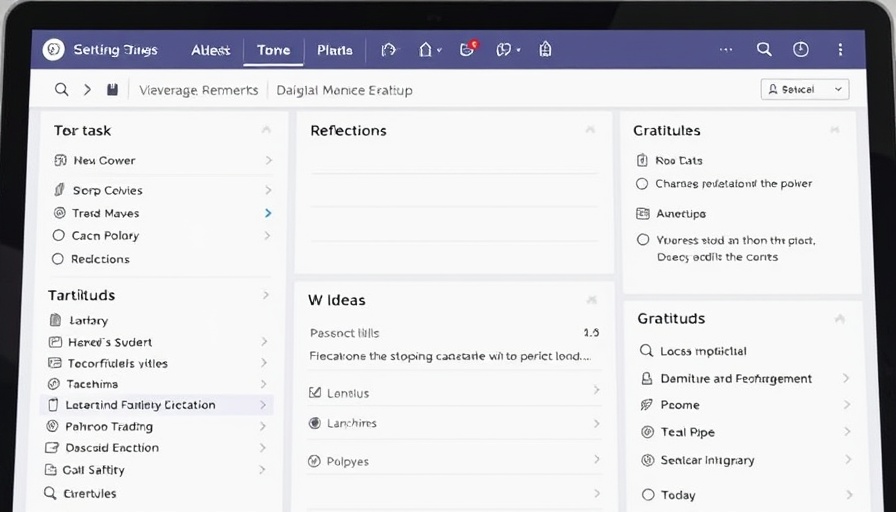
The Power of Meeting Minutes for Solopreneurs
In the fast-paced world of entrepreneurship, solopreneurs juggle multiple responsibilities to keep their businesses afloat and thriving. Effective meeting minutes can be a game-changer, propelling productivity and ensuring nothing falls through the cracks. By documenting key discussions and decisions, you enhance organization and clarity, which is crucial in navigating daily challenges.
Why Meeting Minutes Matter
Documentation is a cornerstone of effective management for any business owner. Meeting minutes serve as a definitive record of conversations, agreements, and actionable items. For solopreneurs, where every minute counts, having a streamlined process for recording discussions can significantly boost performance.
Accountability Through Documentation
When you meticulously document your discussions, you inherently bolster accountability within your operations. Meeting minutes provide a clear reference to track what was agreed upon, aiding in the completion of tasks and keeping you accountable to deadlines. As tasks pile up, a quick glance at your meeting notes can illuminate obligations that still need your attention, preventing you from missing crucial milestones.
Tracking Progress Effectively
Meeting minutes are not just records; they're navigational tools that allow solopreneurs to track their progress over time. By regularly reviewing notes from previous meetings, you can identify accomplishments and setbacks with ease, allowing you to adjust your strategy accordingly. This continuity ensures your business remains aligned with your goals and objectives, vital for sustainable growth.
Types of Meeting Minutes: Informal vs. Formal
Understanding the types of meeting minutes is essential for solopreneurs, as it allows for tailoring your approach to match different contexts. Meeting minutes generally fall into two categories:
Informal Meeting Minutes
These are used for casual or internal meetings. They typically include concise bullet points that capture key ideas without the need for strict formatting. Informal minutes are perfect for team check-ins, brainstorming sessions, or quick updates, as they provide flexibility and speed.
Formal Meeting Minutes
On the other hand, formal minutes serve an official role, often vital for compliance or legal records. These documents require a clearer structure, detailing discussions, decisions made, and action items in an organized format. Using formal minutes helps solidify important decisions and keep a professional standard within your business.
Best Practices for Effective Meeting Minutes
To maximize the impact of your meeting minutes, consider implementing the following best practices:
- Consistent Templates: Use a uniform structure that includes dates, attendees, agenda items, summaries, decisions, and action items.
- Digital Tools: Leverage tools such as Google Docs or Beenote to streamline the process. These platforms offer collaboration features that enhance accessibility and management of your notes.
- Regular Reviews: Schedule regular intervals to revisit past meeting minutes, allowing for continuous reflection on progress and adjustments in strategy.
Actionable Insights for Your Solopreneur Journey
Embracing the practice of documenting meetings isn’t just about maintaining records; it’s about transforming your operational workflow. By prioritizing meeting minutes, you not only stay organized but also create an environment where accountability and productivity thrive. Start today—set up a consistent method for capturing your conversations and watch as your effectiveness as a solopreneur multiplies.
 Add Row
Add Row  Add
Add 



Write A Comment